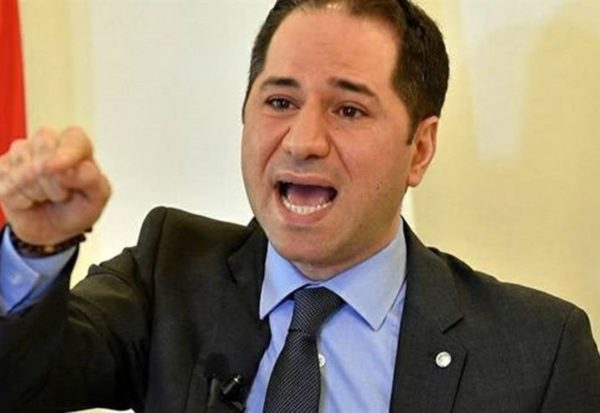Resigned MP Sami Gemayel , the head of the Phalange party and nephew of Lebanon’s assassinated president Bashir Gemayel and son of former president Amine Gemayel has said his country has been “taken hostage by Iran and Hezbollah, ” stressing that the upcoming elections were “a choice between life and death

Beirut- Lebanese opposition figure Sami Gemayel has said his country has been “taken hostage in the hands of Iran and Hezbollah.”
In comments to local media last week , the head of the Christian Phalange party said upcoming parliamentary elections in March ( they have since been delayed to May ) were “a choice between life and death,” as the country sinks ever deeper into an economic and political crisis.
Lebanese must choose, he said, between “taking a first step on the way out of the deadly situation” in which they find themselves, or to go back to the cycle of settlements and compromises that destroyed the country.”
Gemayel, the nephew of assassinated former president Bashir Gemayel, opposed a compromise between Lebanese parties in recent years that allowed Hezbollah to establish a significant foothold in the government.
“Many wondered about the meaning of what we were doing, and about the reason for our refusal to ally with any of the members of the system,” he said. “We were aware at that time that the presidential settlement [that made Hezbollah ally Michael Aoun head of state] would lead to collapse and the handing over of the country to Hezbollah.”
The phalange party does not currently have any members of parliament. Its three elected representatives resigned after the devastating August 2020 explosion at the Beirut port to protest the government.
Lebanon is grappling with an unprecedented economic crisis branded by the World Bank as one the planet’s worst in modern times.
More than 80 percent of the population lives in poverty and the local currency has lost more than 95% of its value on the black market.
Political squabbling has repeatedly hampered financial recovery efforts, including talks with the International Monetary Fund which were launched last year but soon hit a wall.
A new government, formed in September with the aim of carving a path out of the crisis, has failed to meet since October due to divisions over the fate of a probe into last year’s monster port blast.
Hezbollah has been impeding the investigation, leading demands to remove the judge overseing the probe. Multiple legal challenges have been filed against Tarek Bitar.
Rights groups and relatives of blast victims have condemned the court challenges as a blatant form of political interference meant to thwart accountability for the tragedy.
AFP

Leave a Reply
You must be logged in to post a comment.